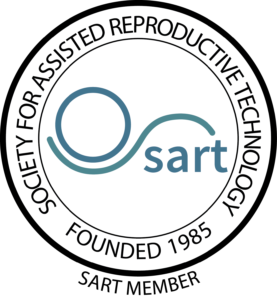Preimplantation Genetic Testing for Aneuploidy: PGT-A and PGT-A+
For people using IVF, it all comes down to one exciting moment: The embryo transfer. Choosing which embryo is the “most likely to succeed” requires experience, skill and collaboration with our partner IVF lab’s embryology team. In some cases, it makes sense to get additional genetic information about your embryos, so that we can select the best one for transfer. If you’re looking for PGT in Nashville, you’ll be glad to know that we offer the most advanced preimplantation genetic testing available today, including both PGT-A and PGT-A+.
The “A” in PGT-A stands for “aneuploidy,” which refers to an abnormal chromosome count. PGT-A and PGT-A+ are both genetic tests that can detect aneuploidy in embryos. A “euploid” embryo has the normal number of chromosomes: 46. Of those, 23 come from the mother, and 23 come from the father. If too many or too few chromosomes are present, the embryo is aneuploid.
Embryos with aneuploidy often fail to implant, or if they do implant, they may fail to develop normally, resulting in miscarriage. In some cases, aneuploid embryos become babies with chromosome disorders, such as Down syndrome, Trisomy 13 or Fragile X syndrome, among many others. Because PGT-A and PGT-A+ can detect chromosome problems before embryo transfer, this test lets us choose only chromosomally normal embryos that will give you the best chance of a successful pregnancy and healthy child.
What is the difference between PGT-A and PGT-A+?
In both types of tests, a few sample cells are removed from the outer layer of each embryo, leaving undisturbed the inner cell mass that would become a fetus. These cells are sent to a specialized genetics laboratory, where they are multiplied into a larger sample and analyzed. The results are then returned to us to guide decisions about which embryo to transfer.
People looking for PGT in Nashville have more options here at NFC. Both PGT-A and PGT-A+ can detect aneuploidy in embryos, and can also provide information about each embryo’s sex, if you wish to know. Both tests provide peace of mind that the embryo you transfer will be free of chromosome abnormalities that could cause a pregnancy to end in miscarriage or a baby with a chromosome-related disability.
PGT-A+ provides the same information as PGT-A, but can also tell us where a chromosomal abnormality is coming from: The egg, the sperm or a random error during cell division.
Because PGT-A+ tests for parental contributions to chromosome defects, it requires not only a sample of cells from each embryo, but also a sample of each parent’s DNA. The biological mother and father – including the sperm or egg donor, if using third-party reproduction – must provide a saliva sample for this test, which the lab will use for comparison during the testing process.
Do I really need preimplantation genetic testing?
While PGT-A can provide valuable information for any hopeful parent, it’s especially important to consider in certain cases. For example, in cases of unexplained infertility, advanced maternal age, recurrent miscarriage, repeated IVF failure, or family history of chromosome disorders, we may recommend this test to put you on a faster path to pregnancy.
Your Nashville Fertility Center reproductive endocrinologist will be happy to discuss whether PGT-A or PGT-A+ is right for you. If you are interested in learning more about PGT in Nashville, please contact us to schedule a consultation.






